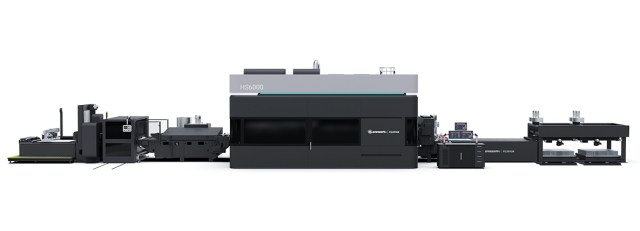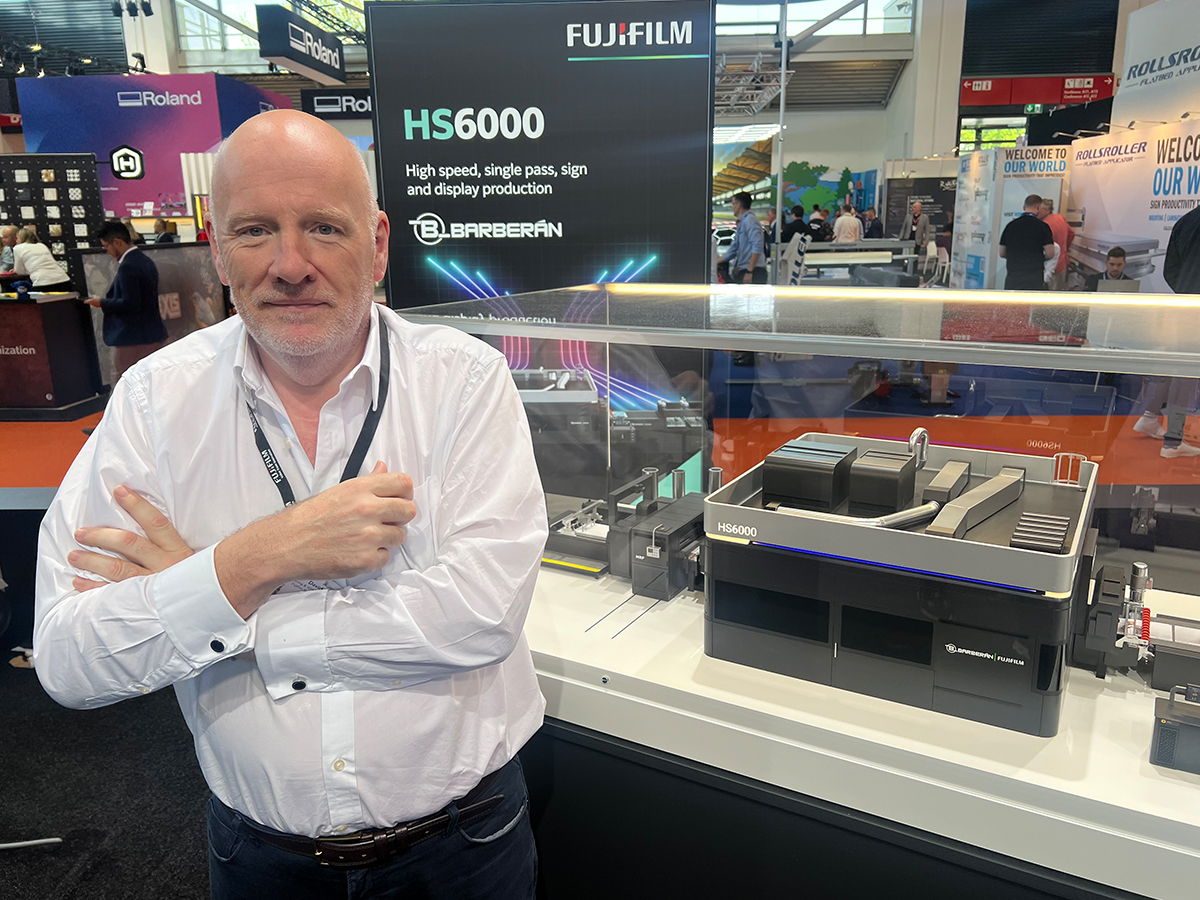Fujifilm has unveiled the most expensive inkjet product on the market with the launch of the HS6000 at Fespa 2023.
Industry estimates place the price of the product at over five million Euros or over $A8 million.
It is expected the HS6000 will operate at 6000 square metres an hour, will consume 30 tonnes of ink annually and will measure over 42 metres in length.
Marketed as being ‘fuelled by Fujifilm’, the HS6000 is not a joint venture with a separate company formed – but a joint development and co-branded between Fujifilm and Spanish company Barberan.

Fujifilm Wide Format Inkjet Systems marketing director, Dave Burton, told New Zealand Printer he is not exactly sure how much the product will cost, although he has already received interest from prospective buyers.
“We actually don’t know the end user price yet because the machine has almost completed its development so we will be talking to customers in September about the real pricing.
“We have four customers that have signed letters of intent and we will go through the validation process with them in October and they are located in every corner of the world.
“If you visit Barberan in Barcelona – they are a heavy engineering business with 60 years of experience. The difference between Barberan and digital print manufacturers is their history is heavy engineering and the weakness of a lot of digital manufacturers when it comes to heavy engineering is their technology business. So the print engine has been developed by them over 10 years, but it is the fact that the print engine is wrapped in very sophisticated heavy engineering that makes the difference.
“If you go to Barberan and look at the business it is steel at one end, heavy engineering, manufacturing and modification on the fly and they build a fit-for-purpose product.
“In conversation with some of our prospective customers, we have been talking about the depreciation of a product like this machine and people have historically looked at offset presses at 15 to 20 years and they have looked at digital presses around 7 years. Where does this fit. And the psychology when you look at this printer is that it is a heavy duty digital press and we are starting to look at depreciation times that are much longer than traditional digital presses – in the teens – and why wouldn’t they be.
“Maybe this is the first digital press that you don’t need to perceive as a digital press – it is a printing solution in its entirety. It is a solution that happens to use a digital print engine.
“It is a very exciting moment when you walk into the print shop and you see a printer of this scale.”
Fujifilm Australia national equipment specialist Glen Conyers explains the technical details of the Barberan single pass inkjet
After working in the printing industry for 38 years, Burton says this is the biggest deal of his professional life.
“Many years ago I used to sell Onsets and I used to flinch when I had to tell customers they were one million pounds – and this is a bit more of a challenge. It is really exciting towards the end of your career to get a chance to work with an absolute zenith of print development is very exciting.
“This is the most expensive printer I have ever sold, but what does it cost – it is the ROI. If you are this end of investment, actually the invoice is one issue – the ROI is the relevant topic.
“We are ready to go – and in September and October we will be putting people in place to close the deals.
Fujifiulm are the technology pioneers and a big corporation while Barberan is a private owned heavy engineering fast moving business. The combination of the two is surprisingly effective and it means we can move at pace and we can apply our R&D to elements such as the ink and other processes. It is actually a marriage made in heaven.
Because of the strong relationship Fujifilm has across the display graphics world and its pioneering work in driving the industry over the last 25 years the customers have been looking for the next big development – the HS6000 project is a response to that demand.
Burton does not believe there will ever be a product on an exhibition stand at a trade show.
“It is likely to only be displayed at a Barberan demo site and our view would be that no one is going to buy one because they walk past one on an exhibition stand – the people who are looking for this type of technology are fairly rarefied customers and they will do their due diligence for their return on investment. When it comes to the analysis of print processes, Fujifilm know the game because we have been in the print business forever – we are already resident in the chemicals business, in the offset business, and the plates business – this is our home turf.”


